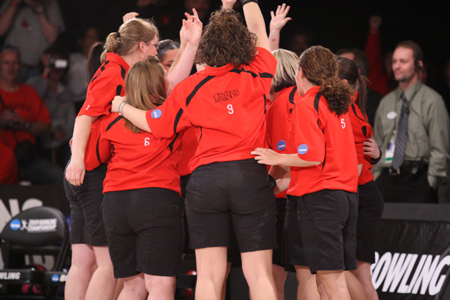Alternate Bowling Games
Alternate Bowling Games
The concept of bowling is relatively an easy one. You throw a round ball down a lane in an attempt to knock over all 10 pins that are standing. If you are unable to accomplish this in the first try, you are allowed one additional throw to take care of the remaining pins.
This goes on for 10 frames, and when it’s all said and done, you have a final score, and really hope it is 300.
Simple, right?
What if we told you there weren’t only different ways to bowl a traditional game, but also different forms of the sport all together? Here’s a look at some different ways to bowl.
Baker Game
Baker competition is often seen at the high school and collegiate levels, and offers a ton of excitement in a team atmosphere.
Instead of five bowlers each bowling an individual game, a Baker game is made up of five competitors who combine to bowl one game. The leadoff bowler will bowl the first and sixth frames, the second bowler will cover the second and seventh frames, the third bowler will take care of the third and eighth frames, the fourth bowler will handle the fourth and ninth frames, and, finally, the anchor will be in position to bowl in the fifth and 10th frame to determine the team’s final score.
The Baker system is used exclusively at the XBowling Intercollegiate Team Championships, which determines the national champion in the collegiate bowling ranks.
No-Tap
Going to a different feel from Baker, no-tap generally is a more laid back and fun way to compete on the lanes.
Depending on the tournament, a no-tap event gives the player a strike for knocking down a pre-determined amount of pins. So if you find yourself at a nine-pin no-tap tournament, don’t worry about trying to convert those pesky corner-pin spares. If you knock down nine pins, it is marked as a strike.
Duckpin Bowling
Duckpin bowling is similar to the standard 10-pin game seen at most bowling centers, but the ball is smaller (similar to a softball) and so are the pins.
A game mostly found in the Northeast part of the United States, duckpin also differs in that it allows three rolls per frame. This also causes the scoring system to be slightly different, although the high score in duckpin also is 300.
Candlepin Bowling
Candlepin bowling shares some similarities to duckpin bowling, with both using smaller balls and allowing three shots per frame. The big difference with candlepin is the pins.
The pins are much thinner, or candle-like, and hold the same shape throughout, unlike the standard bowling pin most are familiar with. This makes it much more difficult to knock everything down in just one delivery.










